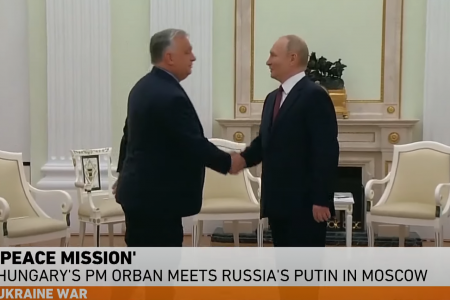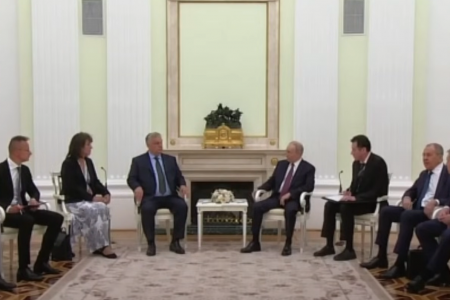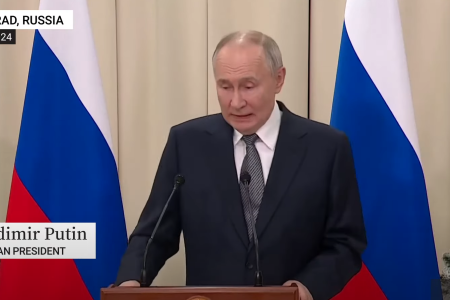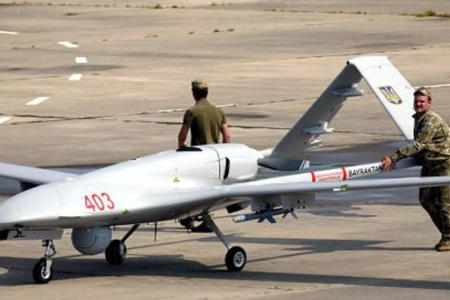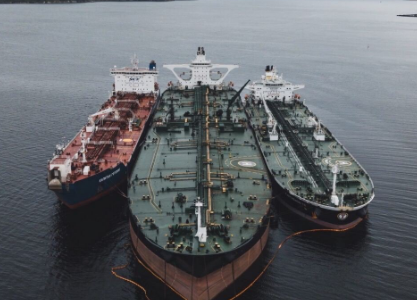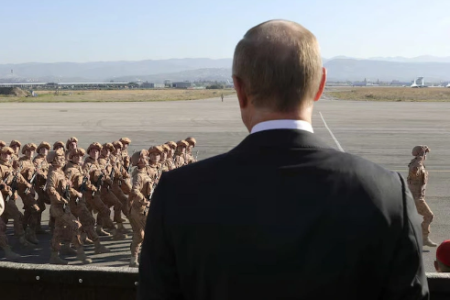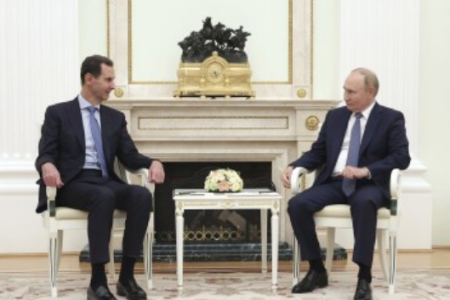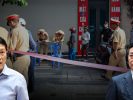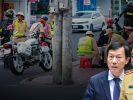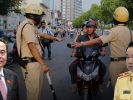
January 20, 2022 marks a year when US President Joe Biden took office. This is an opportunity to summarize a year of US-Vietnam relations under this Democratic president. In general, over the past year, the relationship between Hanoi and Washington has continued to develop. President Biden has not fundamentally changed the policy of his predecessor Donald Trump towards Vietnam, which is now considered an important strategic partner of the United States in Southeast Asia.
The past year of Vietnam-US relations has been marked by two important visits to Vietnam: Vice President Kamala Harris’ visit in August 2021 and Defense Minister Lloyd Austin’s visit a month earlier.
As noted by Chander Shekhar, in an article dated September 20, 2021, on the website of Australia’s Asia-Pacific Policy Association, these two visits, along with Foreign Minister Antony Blinken’s attendance at a live conference meeting of foreign ministers at the East Asia Summit in August showed the growing strategic importance of Southeast Asia in US foreign policy since President Biden took office.
As for Vietnam, the policy of President Joe Biden has not changed much compared to the time of Donald Trump, but his administration has a more flexible and less harsh approach. That is the common opinion of researcher Le Hong Hiep, Institute of Southeast Asian Studies, Singapore, in an interview with RFI Vietnamese on January 10, 2022.
RFI: Hello, researcher Le Hong Hiep. In your opinion, in general, during the first year in office, what new steps has President Joe Biden taken in policy towards Vietnam, or in the immediate future, will he still follow the policy of the previous administration of Donald Trump?
Le Hong Hiep: Overall, in the past one year of Mr. Joe Biden’s rule, we can divide it into two phases. The period is from January to about June-July. In this early phase, the Biden administration has too many domestic problems to deal with, from dealing with the Covid-19 epidemic to economic recovery, so they do not have much time and energy for the foreign front. Therefore, there have been some problems in US foreign policy, as well as in relations between the US and a number of partners, including Southeast Asian partners. For example, US Secretary of State Antony Blinken did not attend a video conference with ASEAN foreign ministers. This has been criticized as a lack of seriousness or negligence of the Biden administration towards ASEAN countries in particular and the Asian region in general.
However, from July until now, perhaps after initially settling domestic issues, the new Biden administration has devoted more resources and attention to foreign affairs, including relations with ASEAN countries and Vietnam. In such a context, the Vietnam-US relationship has also started to have movements since the middle of last year. So far, the Biden administration has generally kept the Trump administration’s basic policy towards Vietnam, typically attaching importance to Vietnam’s role in the strategy on the Indo-Pacific region and in Southeast Asia in particular.
In early 2021, the US government declassified the US strategy for the Indo-Pacific region, referring to a number of key US partners in the region. Particularly in Southeast Asia, it is interesting that this document does not mention Thailand and the Philippines, two treaty allies of the US in the region, but only Indonesia and Vietnam. This is considered an indication that the Trump administration at that time attached great importance to the role of Vietnam in the regional strategy.
In the Biden administration, that trend has been maintained, typically speaking at an event of the American Institute of Peace held on November 19, Mr. Kurt Campbell, a coordinator of the Security Council The United States of America for the Indo-Pacific, also said that India, Vietnam, and a few others will be key players, which will shape the future of Asia. Therefore, the United States will attach great importance to developing relations with Vietnam. That shows that the role of Vietnam in US policy towards the region under Biden has not changed much. However, the Biden administration has a certain adjustment, reducing the level of tension, acrimony, confrontation in some issues, replaced with a more flexible approach.
RFI: Mr. Le Hong Hiep, reviewing a year of US-Vietnam relations under President Biden, are there any outstanding events that marked this relationship?
Le Hong Hiep: First, there were a number of high-level visits by officials of the two sides: the visits of US Defense Secretary Lloyd Austin and Vice President Kamala Harris to Vietnam last summer. On the Vietnamese side, there was a working trip of President Nguyen Xuan Phuc to attend the United Nations meeting. Although he did not visit officially, during the time he attended the United Nations meeting, he also had a number of activities on the sidelines to strengthen Vietnam-US relations.
The second thing shows the US’s interest in Vietnam, which is the US’s large-scale aid to Vietnam with a Covid-19 vaccine. By far, the US is the country that donates the most vaccines to Vietnam, with more than 20 million doses. That is very timely support, helping Vietnam get faster vaccine coverage and better cope with this pandemic.
Third, the US and Vietnam continue to strengthen strategic ties, especially in maritime security. The US has continued to support Vietnam to strengthen its maritime security capacity. Last June, the US transferred to Vietnam the 8021-coast guard ship, the second largest coast guard ship that the US transferred to Vietnam. This is a new example showing the importance of maritime security cooperation in the bilateral relationship in the context that the two sides share common security concerns at sea, especially in the South China Sea (Vietnam calls it the East Sea).
The fourth point is that in April 2021, the US Department of Finance announced that there was not enough evidence to conclude that Vietnam was a currency manipulator and thus the US removed Vietnam from the list of countries that The Trump administration believes is manipulating exchange rates to benefit trade. This also shows that under President Biden, the US adopts a less harsh approach than the Trump administration, a more flexible approach to partners, including Vietnam.
Perhaps thanks to such an adjustment and because the pressure in the bilateral relationship is not as great as before, it is worth noting that in 2021, Vietnam will continue to have a large trade surplus with the US. The US continues to be Vietnam’s largest export market, with an estimated turnover of $95.6 billion. Bilateral relations, especially in terms of economy and trade, continue to have steady development.
RFI: Although US-Vietnam relations in the first year of President Biden continued to be tightened as you just mentioned, Vietnam still seems to be trying to maintain a balance in relations with the US and with China. Why has Vietnam so far not responded to the US request to upgrade the bilateral relationship to a strategic partner?
Le Hong Hiep: Firstly, for Vietnam, the US is important, but China is equally important. Trade relations between Vietnam and China are even larger. China has long been Vietnam’s top trading partner. Vietnam is also keen to maintain good relations with China to help develop its domestic economy. Vietnam very much wants to promote relations with the US, but at the same time does not want to affect relations with China.
Second, in the context of the growing strategic tension between the United States and China, Vietnam also wants to maintain a balance in how to maintain strategic autonomy, without being drawn into the rivalry between the two great powers. Vietnam may also want a lever to bargain or negotiate with the US on a number of other issues.
Third, there are also many people who think that the name is not important. Although the relationship between the two countries is currently only a comprehensive partnership, many people in the US as well as in Vietnam think that it is in fact a strategic partnership.
I recently held a talk show with the participation of Mr. Ted Osius, former US ambassador to Vietnam and Mr. Osius also emphasized this. This view is also shared by some officials or former officials of Vietnam, such as former Deputy Foreign Minister Pham Quang Vinh, who also believes that the Vietnam relationship is already a strategic partnership.
But my point is that although it is true that the name is not as important as the actual movement in the bilateral relationship, there is still a need for a legal framework and a proper name for the bilateral relationship because there are some operations that still need a legal framework as a foundation. For example, if the budgets for bilateral relations want to be approved by the US Congress, there must also be some basis to explain that budget. Thus, if there is a strategic partnership framework, that problem will be resolved more satisfactorily. Therefore, I also heard some views that the upgrade of a strategic partner is not that Vietnam does not want to do it, but just chooses an appropriate time to do it.
There is also an opinion that the appropriate time is 2023 when Vietnam and the United States celebrate the 10th anniversary of the signing of the declaration of comprehensive partnership. I also believe that it is the right time and Vietnam should not miss the opportunity to sign a strategic partnership with the US before things become more complicated and unfavorable for Vietnam.
RFI: Mr. Le Hong Hiep, although Vietnam cannot be an ally of the US like some other countries, in the confrontation with China over the East Sea issue, what can Vietnam expect from the US?
Le Hong Hiep: The general concern about China’s rivalry as well as China’s increasing encroachment in the East Sea can be seen as one of the main driving forces for the development of US-Vietnam relations in the past time.
In the coming time, I think the South China Sea issue will remain one of the important driving forces for bilateral relations. The Vietnamese side wants a strategic balance in the region and the involvement of external powers to rebalance China’s power, in the context that countries in the region have too many disparities. great power with China. Therefore, the participation of countries like the United States or its allies abroad in the sea will benefit Vietnam.
The first thing Vietnam looks to is the continued presence of the United States in the region, especially militarily. Second, Vietnam looks forward to maintaining the rules-based regional order that the United States and its allies desperately want, especially ensuring international law in the South China Sea, because it benefits Vietnam. Third, Vietnam expects the United States to support Vietnam in international forums, to enhance Vietnam’s position in responding to China’s pressure. Fourth, Vietnam also looks to the United States to help Vietnam strengthen its maritime capabilities. Fifth, just as important, Vietnam wants the United States to maintain operations on the ground so that it can control China’s behavior. One of those activities may be continuing to maintain freedom of navigation operations in the South China Sea.
Thoibao.de (Translated)



